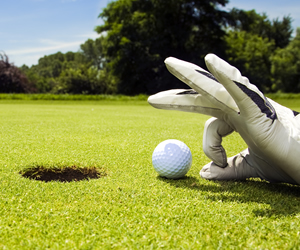 Sport Coaching represents one possible application of the Coaching method to sports.
Sport Coaching represents one possible application of the Coaching method to sports.
Sport Coaching differs from Training (narrowly intended as practicing and exercising) because it turns its attention to all problematics related to motivation; it mainly focuses on the abilities to concentrate, on relaxing and on the athlete’s emotional intelligence and self-efficacy.
The first use of Coaching in the world of Sports dates back to the 70s, when Timothy Gallwey (78 yeas old today) argued that one of the fundamental elements for an athlete’s improvement of performances was represented by the ability to defeat “the opponent hiding inside”.
Gallwey, in his previous studies on Coaching, used to affirm that the real game had to be “existential”: “… focus on one thing at a time without being overwhelmed by self critiques and without focusing on errors”.
Gallwey’s “Inner Game” was mainly based on two fundamental principles:
- Precise and non-evaluative observation of the athletic feat;
- Recognition of the feat, with the consequent autonomous and natural correction of the performance.
Gallwey was one of the first persons who proved that Coaching could be applied to many fields (especially in the world of Business) and, for this reason, he tried to apply his theories in different contexts sharing the concept of “The Inner Game”.
Today, the objective of a Sport Coach is still building a processual relationship with an Athlete (a team or any other subject operating in the world of sports) which may produce a specific increase of results, as well as the optimization of performances; in the Coaching relationship, prescriptions, judges and critiques (just to give some examples) are still forbidden.
Modern Coaching has strengthened and developed Gallwey’s certainties even if, as it often happens, there have been inevitable “cultural contaminations”.
I’ll give you an example… in the world of Sport Coaching, we often talk about mental training or Mental Coach, even if there is no “mental” activity at all, to intend as clinical recover. In my opinion, the word Mental Coach should be dosed as it is known that, sometimes, it is rashly used in order to create a little mystery and appeal around the concept of Sport Coaching.
Does Sport Coaching – the serious one – really need it? Are we really sure we have to distort or contaminate the Coaching method with vocabulary and special effects?
When I think of a Mental Coach (intended as the “worker” of the mind), I can’t help thinking of some sort of “artisan of the mind”, who tries to make his way with some techniques of persuasion, or who tries to break down the athlete’s motivation with wise techniques of manipulation. When will we get rid of these persons and of these pseudo-Mental Coaches?
What is certain is that, if we wanted to consider motivation, determination and some specific activities related to relaxing and concentration as a series of “atypical mental activities”, we could justify the use of the concept of “Mental”. In the end, however, I’d rather talk about “winning mentality” than about activity “on the mind”; I find the idea of being myself a “mind trainer” a little disturbing!!!
In my experience, instead, there is nothing atypical… working with a Top Athlete requests the same commitment I reserve to a Top Manager.
In the Sport Coaching School, which I have the pleasure to manage, I firmly underline the distinction between operating in a clinical environment and doing Sport Coaching, as well as the difference between to persuade and to motivate; I make the effort to lead the method back to those basic aspects which, starting from Gallwey, allowed the establishment of Coaching.
I want to make it clear… most part of the athletes present the characteristics of a healthy and equilibrated personality; the request of an athlete is almost always related to performance and result and, therefore, the main interest is to elevate or to maintain high standards of efficiency.
Among the most appropriate Sport Coaching interventions, instead, in addition to the athlete’s specific preparation, there is the good training and the articulation of relationships and sociality, as well as the relationships with the trainer, team-mates and the sport-club, by building, identifying and controlling possible agents that may nullify the performance.
Moreover, the hierarchical asset, defined management-trainer-athlete, highly recalls the business asset with the only difference that we have the “performance” at the end of the sport process, and the “product or service” at the end of the business process.
Our Sport Coaching Courses have been structured in order to transfer competences related to the improvement of motivation, stress management, the definition of challenging goals, improvement of persistence and tenacity, reduction of anxiety through relaxation techniques and the construction of the Flow state.
Latest news… subscriptions to our Sport Coaching School are open, in order to discover all secrets about Sport Coaching.
If you wish to become a Professional Sport Coach, contact us now!
Bye!


 Share On Facebook
Share On Facebook Tweet It
Tweet It



























